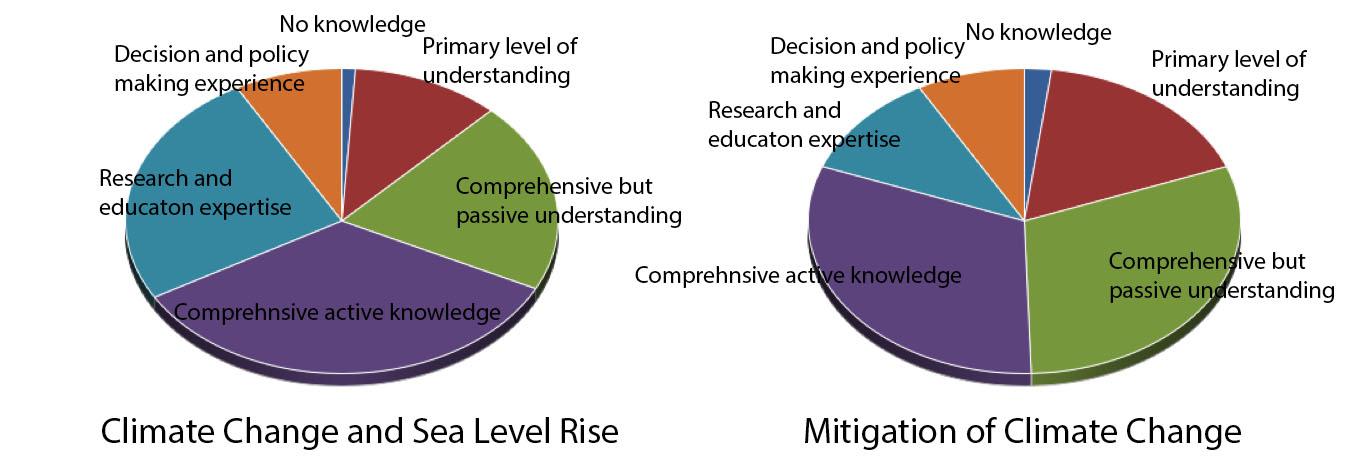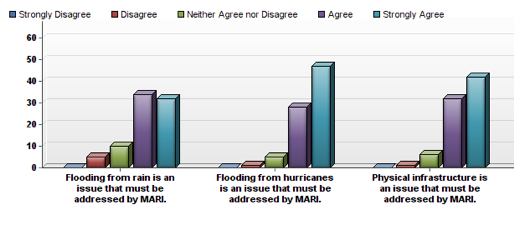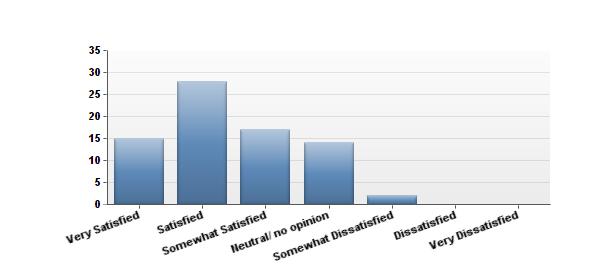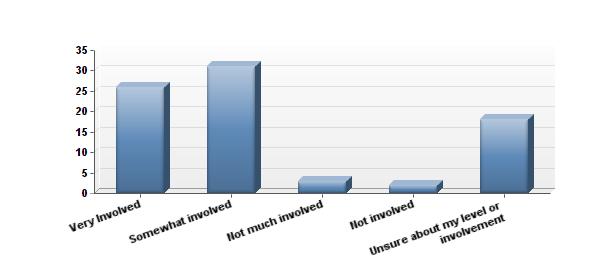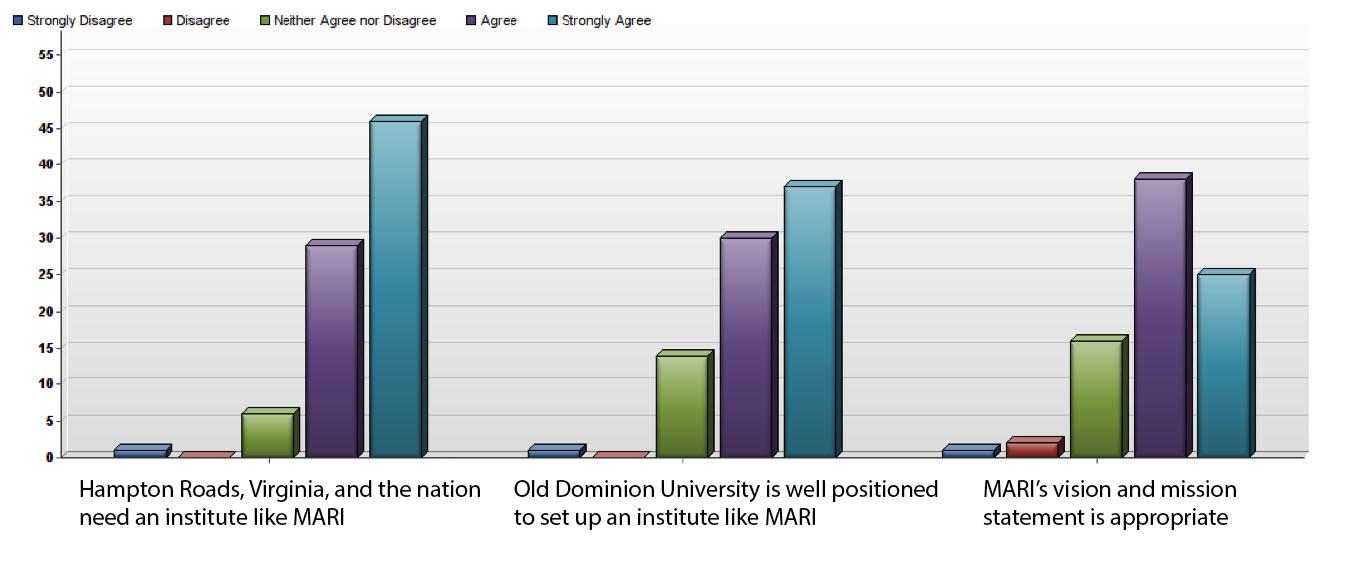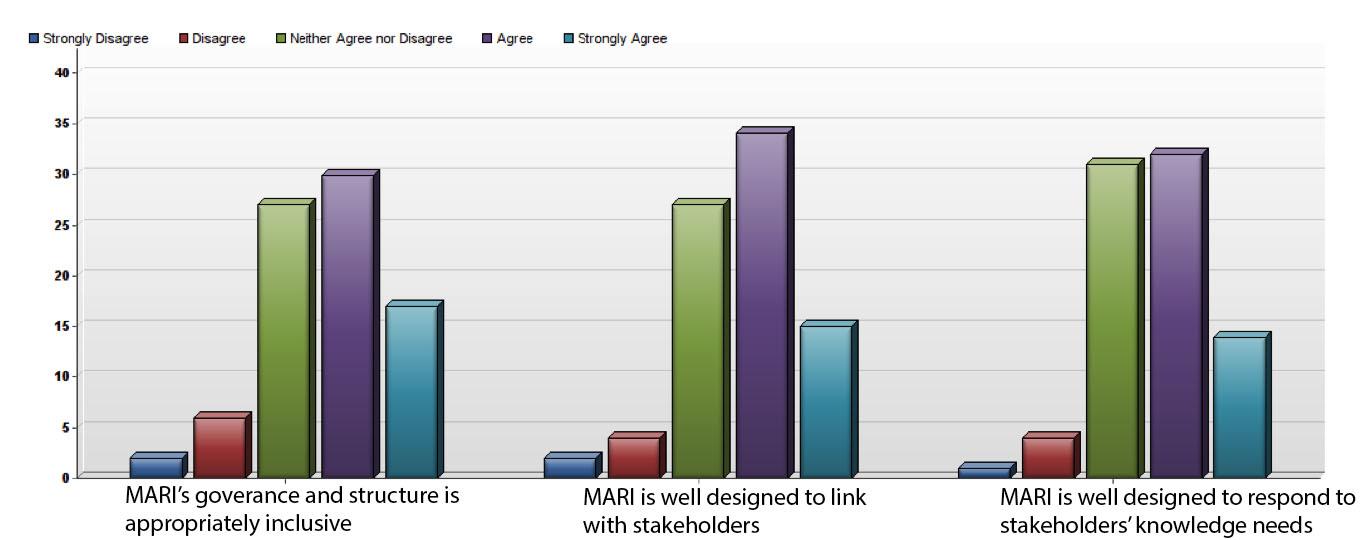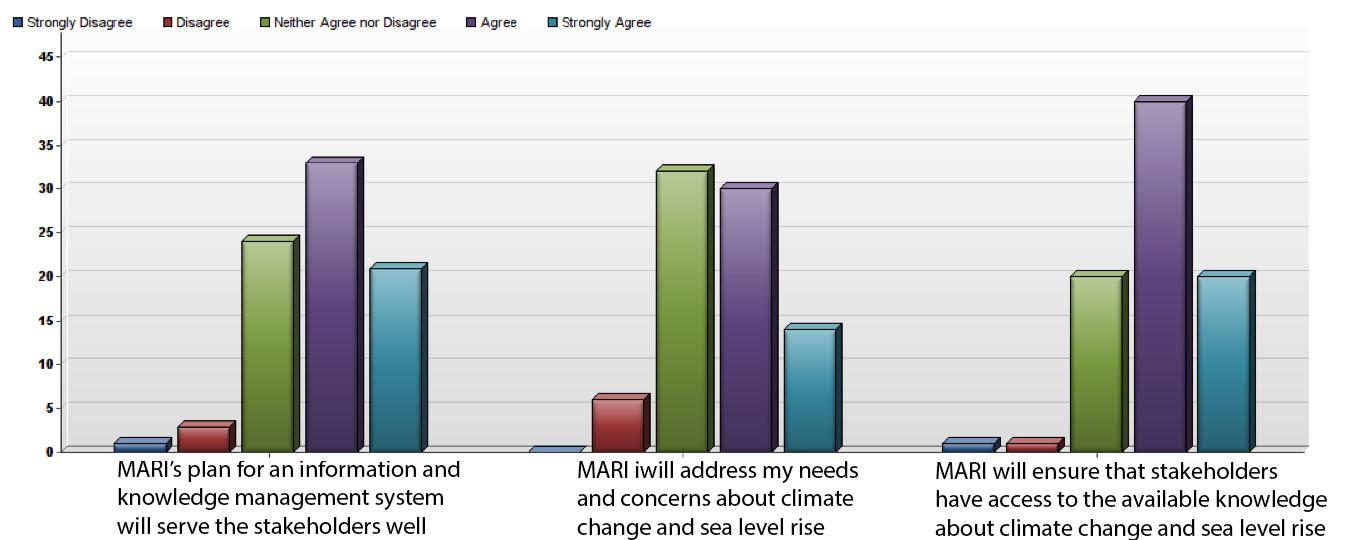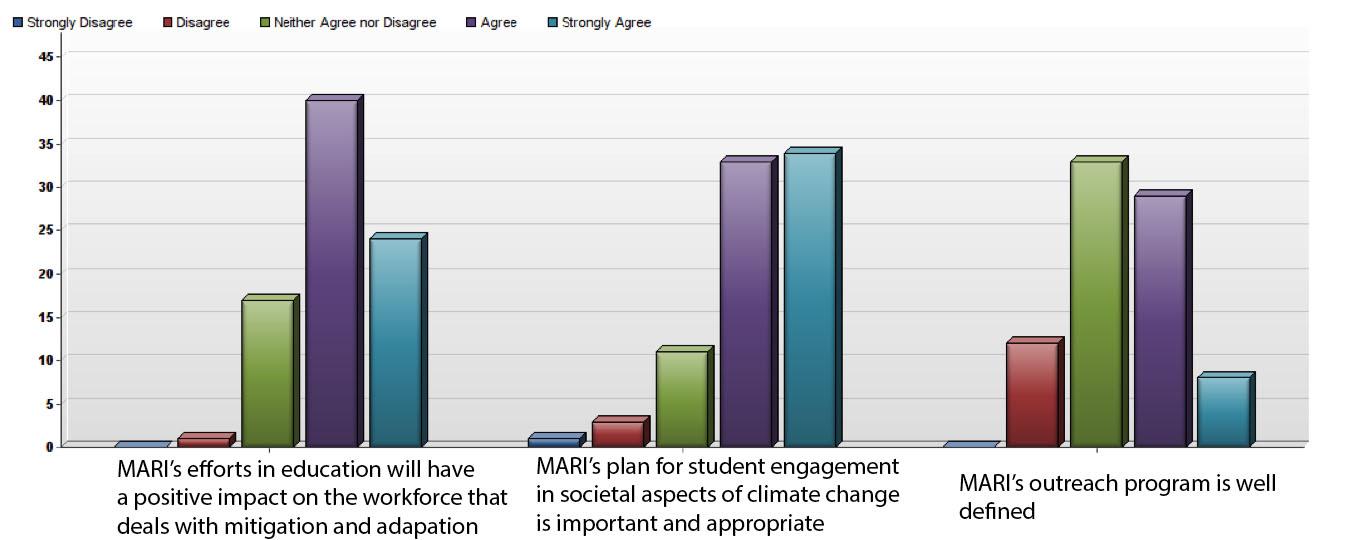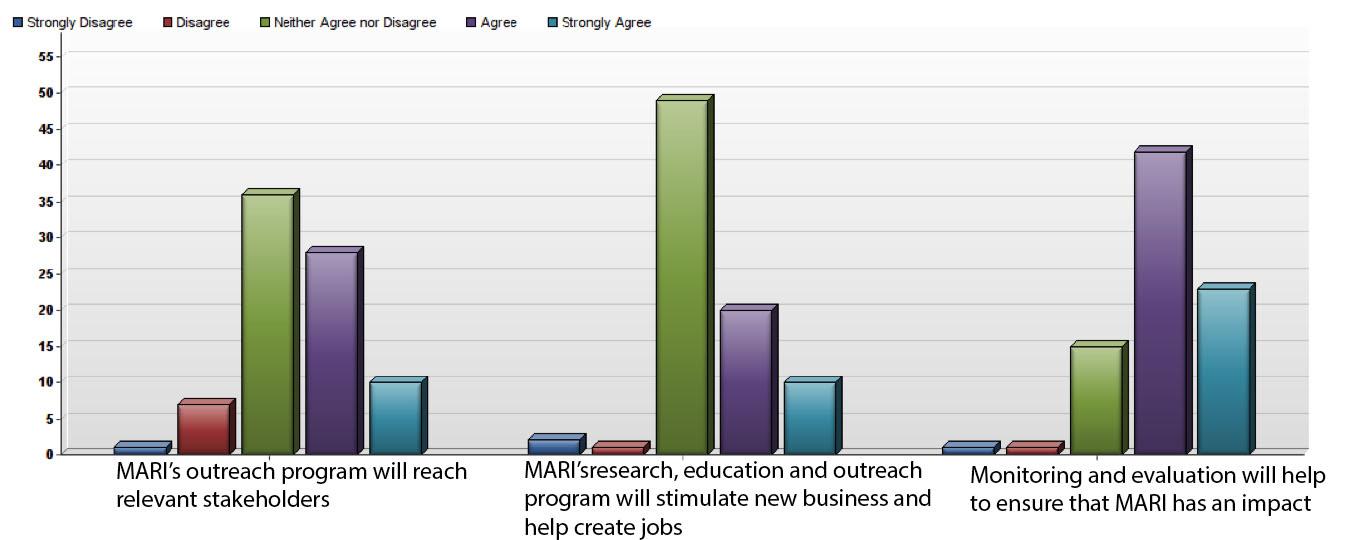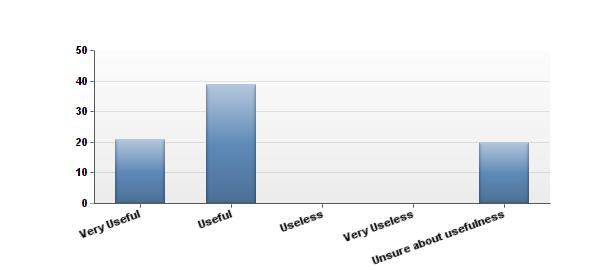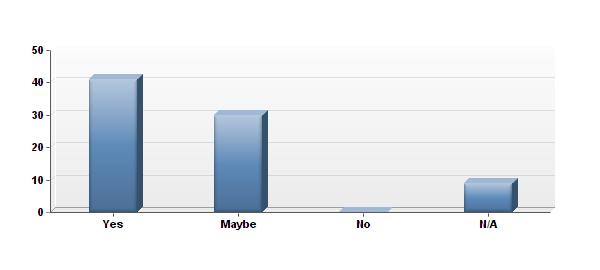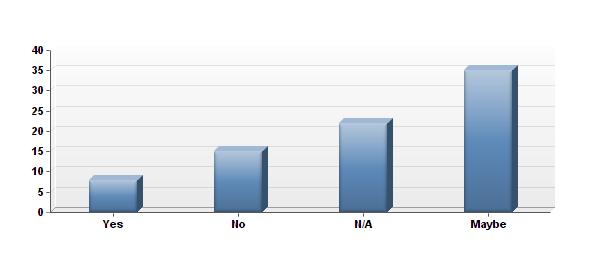 |
MITIGATION AND ADAPTATION RESEARCH INSTITUTE (MARI) |
 |
MARI News Press Releases Blogs&Lists About Us Newsletter Disclaimers |
MARI STAKEHOLDLER SURVEY SUMMARY REPORTIn support of the development of the Mitigation and Adaptation Research Institute, MARI, the proposal writing team developed a survey to elicit stakeholder comment. The survey was conducted using the internet-based survey tool, Qualtrics, hosted by Old Dominion University and was available from February 26 to March 21, 2014 The invitation to take the survey was distributed to approximately 550 stakeholders who were identified through their participation in previous climate change adaptation events, local government contacts and email lists. Recipients were asked to invite interested colleagues or other contacts to participate in the survey by forwarding the solicitation email. One hundred and eleven responses were received. Most people spent approximately seven minutes on the survey. About a quarter of the respondents were from academia and a third were from federal, state or local government. About 15 percent were from for profit businesses, while 19 percent were from a non-governmental organization. The respondents were active in many different governance activities, most prominently policy, planning, research and education. The stakeholders who responded were generally knowledgeable about climate change and sea level rise mitigation and adaptation (see Figure 1). Key findings:
The findings of the stakeholder survey will be used to shape the plan of MARI going forward. Figure 1. Stakeholder self-reported knowledge and expertise. Figure 2. On a scale from 0 to 5, rate your sense of urgency concerning climate change and sea level rise. Figure 3. Issues that must be addressed by MAR.I Figure 4. Previous Experience with CCSLRI. Figure 5. Satisfaction with CCSLRI Figure 6. Expected future involvement with MARI. Figure 7. Stakeholder opinions of MARI proposal. Figure 8. Stakeholder opinions about MARI education and outreach plans. Figure 9. Usefulness of MARI. Figure 10. Partnership potential: If MARI establishes a Partnership on Mitigation and Adaptation, would your organization consider joining this partnership? Figure 11. Financial support potential: If MARI was providing valuable information for your organization, would you consider financial support in the future? |
